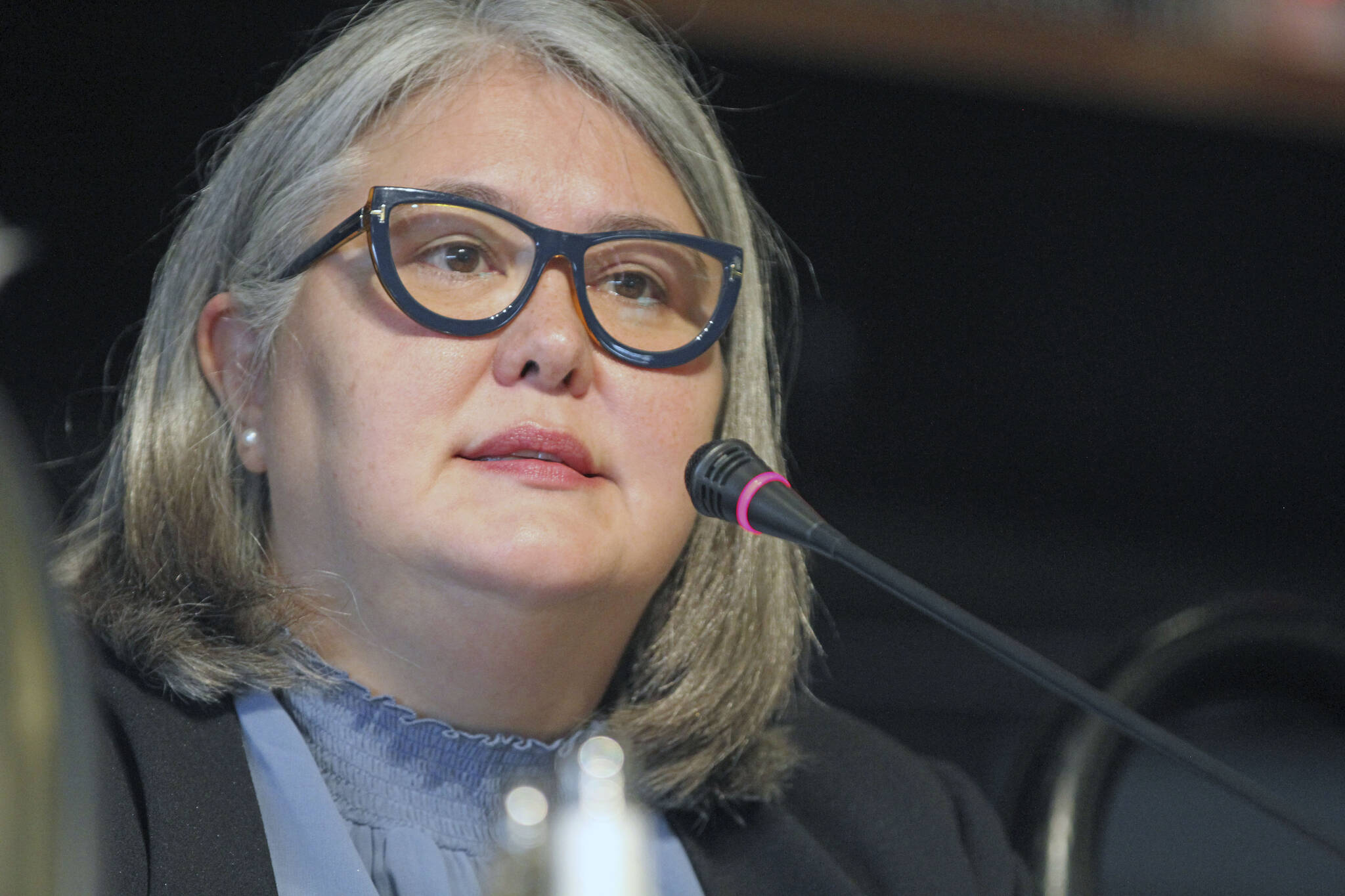Democrat Mary Peltola expanded her first-choice vote lead over Republicans Sarah Palin and Nick Begich III in Alaska’s special U.S. House election, according to an update by the state Division of Elections on Tuesday. But Palin’s second-place status appears to be solidifying enough to eliminate Begich from the first round of ranked choice voting and potentially prevail against Peltola when second-choice votes are tallied.
The updated results are nearly identical to those released last Wednesday, suggesting significant movement by the Aug. 31 deadline for the Division of Elections to receive absentee ballots is unlikely. Peltola now has 38.2% (compared to 38.05% last week), Palin at 31.82% (down from 31.93%) and Begich at 28.47% (down from) 28.54%.
“This update includes (House District) 31-35 absentee, questioned and early, and (House District) 36 absentee and early,” the Division of Elections noted in a statement at 2:30 p.m., referring to six districts located in the Fairbanks region. “We’ll have another update today and we don’t yet know what time that will be.”
[Groups sue over lack of process to fix ballot mistakes]
The state’s new ranked choice system won’t receive its final calculation until Aug. 31 if no candidate has a majority of first choice votes.
The current vote trends among the three candidates contradict some pundit predictions before the election that Palin’s high negative ratings among voters would cause her to lose a head-to-head matchup against Peltola. Ivan Moore, head of the lone polling firm being cited by political media and forecasting sites, stated in a Tweet immediately after the election night tallies Peltola likely to wins by at least 10 points among first-choice voters to ultimately prevail over Palin.
Furthermore, the dynamic between the three candidates may continue beyond the Aug. 16 special election to fill the remainder of the late Don Young’s seat into the regular general election in November. Republican Tara Sweeney announced Tuesday she is dropping out of the race after finishing far behind the top three candidates with about 3.7% of the vote before Tuesday’s update, even though Alaska‘s new primary system allows the top four contenders to compete in the general election.
“Looking at the outcome of the regular primary election I don’t see a path to victory, nor to raise the resources needed to be successful this November,” Sweeney said in a prepared statement. The statement does not endorse another candidate and a campaign spokesperson said she is currently making no additional comments.
The fifth-place candidate is currently Chris Bye, a Libertarian with 0.63% of the vote as of Tuesday, who in a Ballotpedia survey named Ron Paul as the politician he most looked up to. While Bye’s presence on the general election ballot would give him increased visibility to voters, he would need to significantly increase his primary showing to have an effect on anything but the closest of races if his second- and third-choice voters become part of the final tally.
A similar situation occurred in the special election primary in June, when Democrat Al Gross surprisingly dropped out after finishing third. The Division of Elections rejected Sweeney’s attempt as the fifth-place finisher to be included in the final special election vote because Gross withdrew within 64 days of the election.
Sweeney’s withdrawal on Tuesday comes 77 days before the November general election, so whoever finishes fifth when all primary votes are counted will advance to the general election, said Tiffany Montemayor, public relations manager for the Division of Elections.
The updated vote totals and Sweeney’s withdrawal both have implications that could be decisive in what so far is a tight race.
Peltola may be the biggest beneficiary, since the Democrat’s primary vote of 35.16% percent is 3% less than her special election vote, while Begich’s 26.81% is less than 2% below his special election tally. Palin so far has 31.14% of the primary vote, only slightly down from the special election results.
In additional updates for the primary elections, incumbent U.S. Sen. Lisa Murkowski at 44.18% continues to maintain almost exactly her initial lead over fellow Republican Kelly Tshibaka at 39.81%. Democrat Pat Chesbro continues to linger far behind her polling numbers at 6.18% and virtually unknown Republican Buzz Kelley — who Tshibaka says benefited from her “Vote for Kelly” signs — is solidifying his distant fourth-place among the remaining 16 candidates at 2.2%.
The governor’s race continues to be dominated by Republican incumbent Mike Dunleavy who has 41.76%, with independent Bill Walker at 22.11% and Democrat Les Gara at 21.94% continuing to swap places in a dead-heat battle for second place. Republican Charlie Pierce appears safely positioned in fourth place with 6.83%, well ahead of the remaining six candidates.
In the Alaska State Legislature races the results remain essentially the same for the 59 of 60 House and Senate seats in practical terms since nearly all have four or fewer candidates, including Juneau’s three seats. But four candidates trailing far behind so far have dropped out since election night, including independent Shevaun Meggitt in Ketchikan who has less than 4% of the vote, compared to independent incumbent Rep. Dan Ortiz with 51% and Republican challenger Jeremy Bynum with 45%.
A multitude of endorsements have occurred since last Tuesday’s elections, the most notable local one coming this Tuesday from Juneau Mayor Beth Weldon who along with other Southeast Alaska leaders gave their official backing to Murkowski. Notable among other local endorsements is Sealaska Corp. backing Peltola, Walker and Murkowski.
• Contact reporter Mark Sabbatini at mark.sabbatini@juneauempire.com

